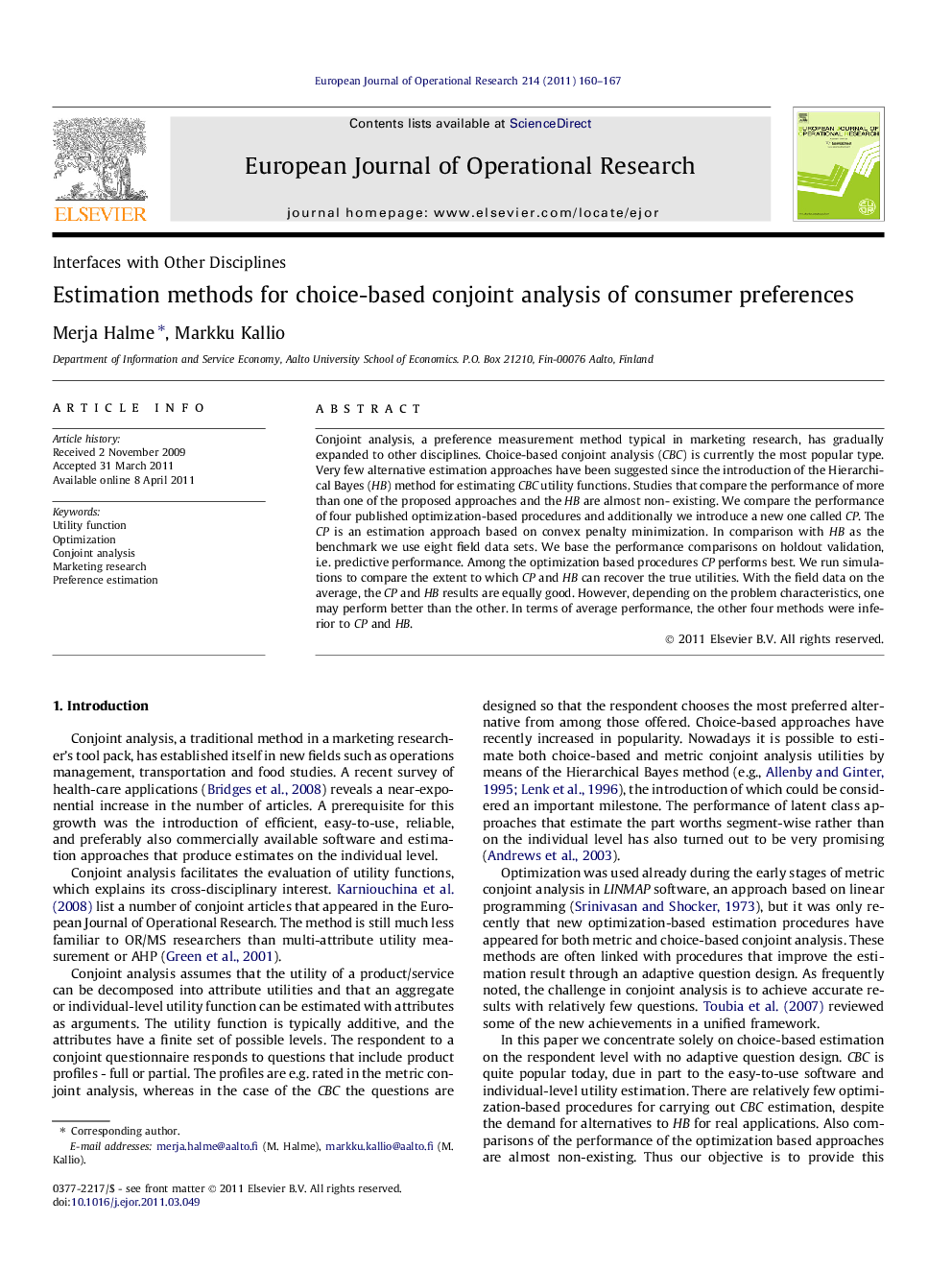| Article ID | Journal | Published Year | Pages | File Type |
|---|---|---|---|---|
| 478501 | European Journal of Operational Research | 2011 | 8 Pages |
Conjoint analysis, a preference measurement method typical in marketing research, has gradually expanded to other disciplines. Choice-based conjoint analysis (CBC) is currently the most popular type. Very few alternative estimation approaches have been suggested since the introduction of the Hierarchical Bayes (HB) method for estimating CBC utility functions. Studies that compare the performance of more than one of the proposed approaches and the HB are almost non- existing. We compare the performance of four published optimization-based procedures and additionally we introduce a new one called CP. The CP is an estimation approach based on convex penalty minimization. In comparison with HB as the benchmark we use eight field data sets. We base the performance comparisons on holdout validation, i.e. predictive performance. Among the optimization based procedures CP performs best. We run simulations to compare the extent to which CP and HB can recover the true utilities. With the field data on the average, the CP and HB results are equally good. However, depending on the problem characteristics, one may perform better than the other. In terms of average performance, the other four methods were inferior to CP and HB.
► A new approach to estimating individual value functions in choice based conjoint analysis is introduced. ► Performance of five optimization-based methods is compared with Hierarchical Bayes as the benchmark. ► We use eight field data sets in the comparison and the holdout-hit-rate as the criterion of performance. ► With the field data, on the average, the new approach and HB are equally good.
